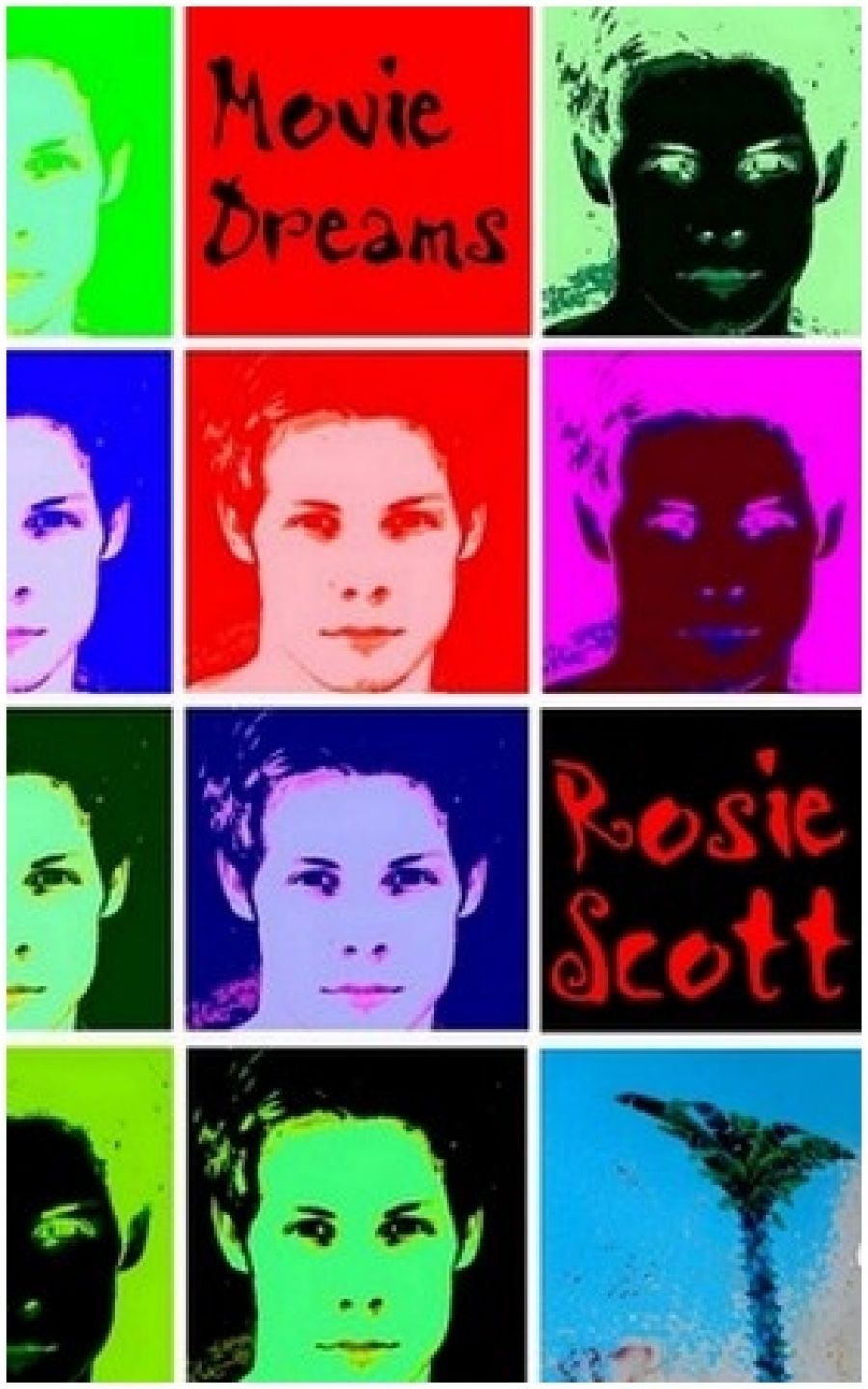
- Free Article: No
- Contents Category: Fiction
- Review Article: Yes
- Custom Highlight Text:
There’s a line in the film Out of the Past: ‘I think I’m in a frame, I’m going in there to look for the picture.’ Reading this book is a bit like that. Not that Scott necessarily writes with one eye on the film rights (though Movie Dreams may well translate effectively to film), but because the book is largely an exploration of the influence of popular movies on the imaginative life – especially the imaginative life of a troubled adolescent who once had film school aspirations.
- Book 1 Title: Movie Dreams
- Book 1 Biblio: University of Queensland Press, $14.95 pb
I thought about him a lot, how one day he’d come to the door, one of those cool directors who do brilliant alternative films and eventually get into the mainstream through ability, not through selling out.
All in all, he’s a very mixed up kid. He’s searching for something but he can’t say what. He’s pretty sure he’ll find it somewhere up near the Daintree which he saw on a doco on TV. But wherever he goes, Lee, the skins, his father, all stay with him, haunting his troubled movie dreams. Unable to give expression to how he feels, he manages by retreating into the familiar world of film, projecting himself into scenes that allow him to make some sense of the world about him. Life reflecting Art. Film as the ultimate escape.
He packs lightly, seeing himself as the guy in Strangers in Paradise and runs away thinking of one of the lost boys in Spielberg’s movie, ‘how he was lost forever, looking into his old life like a ghost’. A truckie, spaced out on amphetamines and half-crazed with driving, gives him a lift as far as Rocky and Adan sees it as ‘like Mad Max, the way we were burning down the empty highway’. The further north he travels, the more weird and crazy the world becomes, the more he realises that ‘all the time underneath people like the truckie were stalking around full of sickness and drugs and death’.
For readers of Scott’s earlier fiction, it’s a familiarly steamy and seedy world she creates here. A surreal world of doped-out characters living frightening lives on the edge which provides an alternative to the postcard and travel poster images of northern Queensland. In many ways, it’s a journey into Adan’s heart of darkness, to the extent that I was surprised not to find an Apocalypse Now allusion.
In Cairns, Adan finds work at a suitably down-market cafe run by JeanPaul, a stoned French chef, and his sister Sofie. They look like movie stars with their stylishness and total cool. It’s an attractive alternative to what his real life seems to offer and, before long, Adan’s part of the scene with a huge audience watching in silent admiration:
I couldn’t help myself, I started cranking up one of those wide shots in my head – the three of us sitting at a cafe table – the awning, the sea, the heat, their foreignness, sex, mystery – and the shot kept widening, barrelling into the blue until we merged into one speck and finally disappeared altogether.
It’s an effectively reflexive device. If Jean-Paul and Sofie look like they’ve walked off a B-grade film set, then that’s precisely what they’re supposed to look like. The technique gives Scott extraordinary licence to draw on a wide range of scenes, characters, and lines from the stock of popular culture to invest her own work with significance and meaning. Many of the films through which Adan lives have become popular icons, especially for the youth market at which I suspect this novel is directed: Mad Max, Back to the Future, The Blues Brothers. But if recognition of the familiar is reward for the initiated reader, there is also the potential for shutting readers out. I must confess that some of the references left me wishing I’d spent more time at the movies.
Adan, with his paranoia and depression, his fear of attachment or commitment, his lack of purpose and direction, can be read as a representative of Generation X. He’s the sort of character who identifies with River Phoenix and Kurt Cobain, who feels he’s been cheated or betrayed before he’s really had a chance. Despite his reliance on the world of movies for self-expression, he is at times remarkably sophisticated and urbane, slipping into French conversation with JeanPaul and displaying an intelligence and understanding that at times seem at odds with his age and circumstances.
He sees easily through the shallowness of the string of characters who try to offer him comfort and advice: the guy in the car who tells him to get a business degree; the ‘real motherly’ girl in the café; Tracey, the ultrafem who wants him for his body; Velvet, who slips him some wicked pills; Star, the stoned Murri who reminds him of Lee and slips his tongue into his unsuspecting mouth. There’s a whole generation of readers who’ll identify with Adan and the phonies who prey on him, just as earlier generations have identified with Caulfield – about whom, to my knowledge at least, no movie has yet been made.


Comments powered by CComment